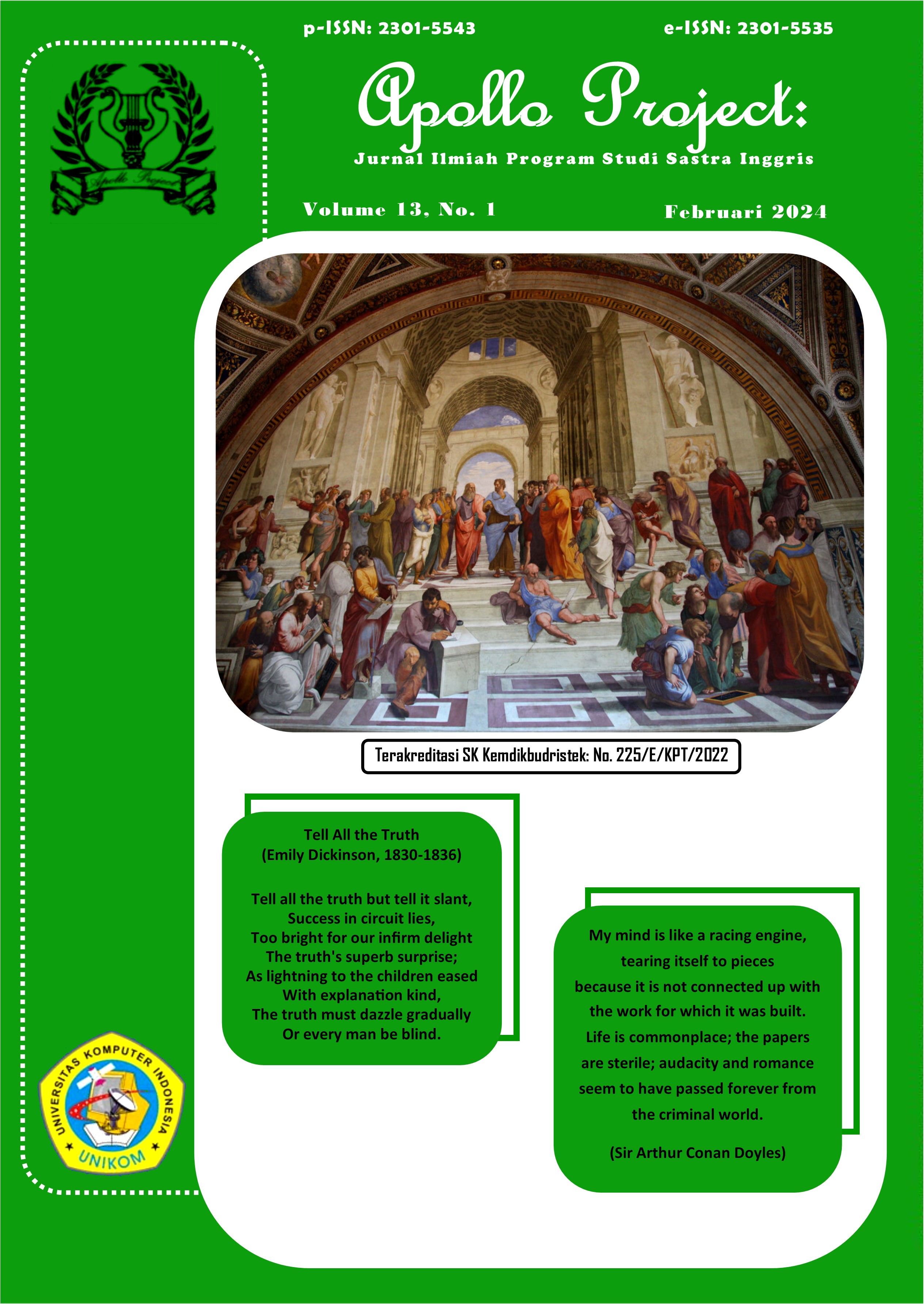Analysis of Language Politeness in Students and Lecturer Interactions on WhatsApp group: a Pragmatic approach
Main Article Content
Abstract
This research presents an analysis of language politeness in interactions between students and lecturers on WhatsApp group. With the increasing integration of digital platforms in educational settings, understanding the dynamics of language use and politeness in these contexts becomes crucial. The study aims to investigate the strategies employed by students and lecturers to convey politeness and maintain positive interactions within a virtual learning environment. The research adopts a qualitative approach, utilizing discourse analysis to examine messages exchanged on WhatsApp group among students and lecturers. The data collection involved capturing and archiving conversations from WhatsApp group in English Syntax course in 2021/2022 academic year of English Department in Universitas Komputer Indonesia (Unikom). The data are analyzed using Leech’s politeness theory. According to Leech the politeness principles are divided into six, namely the tact maxim, generosity maxim, approbation maxim, modesty maxim, agreement maxim, and sympathy maxim. The results show that the percentage of conformity regarding compliance and violation of maxims with the result being 100% conform, so that politeness in language interactions between students and lecturers in WhatsApp media in the course was stated to be very polite. The findings indicate that both students and lecturers employ various politeness strategies to foster positive communication. These strategies include the use of indirect speech acts, mitigating language, politeness markers, and positive politeness strategies such as expressing gratitude and offering support. Furthermore, the analysis reveals the influence of power dynamics on language politeness. Lecturers were found to engage in a more authoritative discourse, while students often adopted deferential and respectful language. However, instances of assertiveness from students were also observed, challenging traditional power differentials and promoting a more egalitarian communication style. The implications of this research shed light on the importance of fostering respectful and polite communication within virtual learning environments. The findings can inform educators and students on effective language use to maintain positive interactions and create inclusive educational spaces. Furthermore, the study contributes to the existing literature on digital communication and politeness strategies, adding valuable insights into the specific context of WhatsApp group interactions in educational settings.
Keywords: Language politeness, Virtual Learning Environment, WhatsApp Group, Maxims

